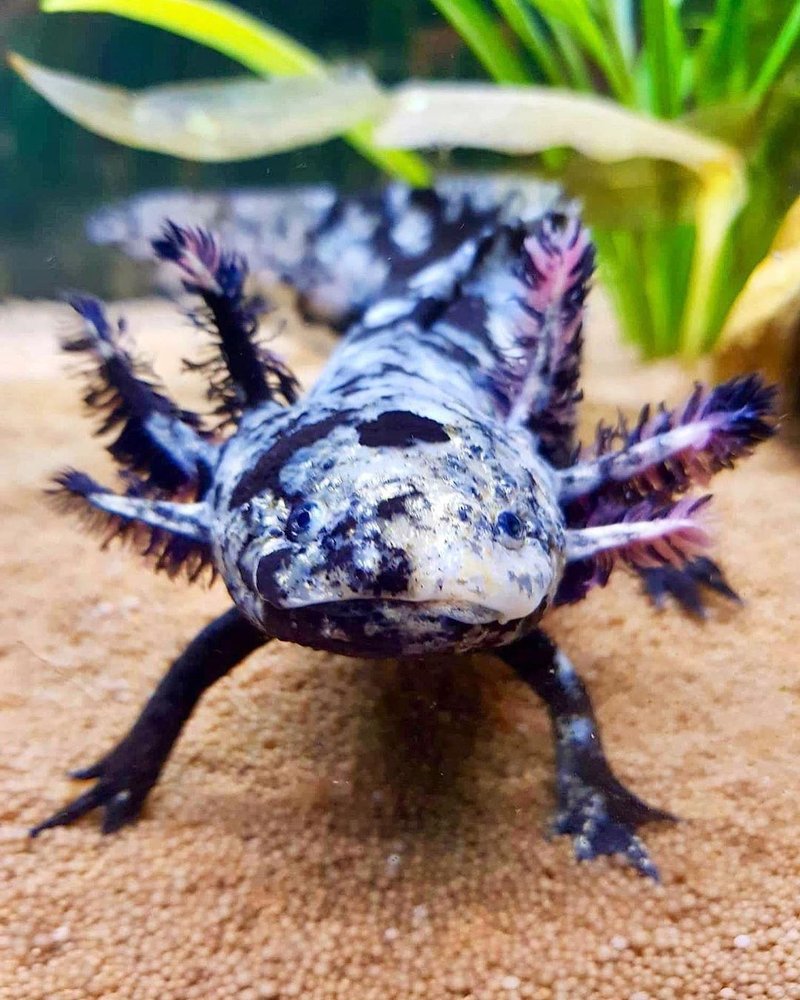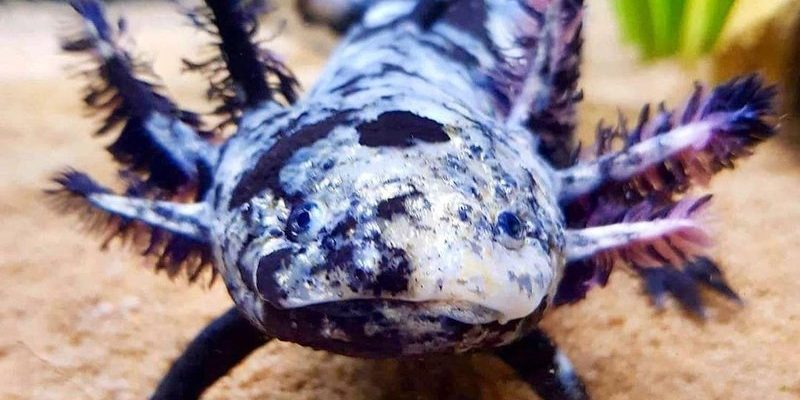
Owning an axolotl can be a rewarding experience that brings joy and a unique twist to pet ownership. However, there are some challenges to think about, too. You might be wondering if these quirky little guys are a good fit for your lifestyle or if they require special care that you may not be prepared for. Let’s explore the ins and outs of axolotl ownership to help you make an informed decision.
The Allure of Axolotls: What Makes Them Unique?
Axolotls are not just your run-of-the-mill pets; they’re actually a type of salamander that remains in its larval form throughout its life. This means they never fully grow up, which gives them that charming appearance reminiscent of a cute cartoon character. They come in a variety of colors, like the classic pink and white, or even a striking black and gold.
One of the most fascinating things about axolotls is their ability to regenerate lost limbs and even parts of their heart and brain! Imagine if your dog could grow back a leg if it was injured—that’s pretty cool, right? This unique characteristic has sparked interest in scientific research and made them a subject of fascination among pet lovers.
But their special traits come with their own set of needs. You’ll need to create a suitable environment to keep them healthy and happy, which can be a bit of a commitment.
Pros of Owning an Axolotl
Let’s start with the positives! There are several benefits to having an axolotl as a pet.
- Low Maintenance: Unlike dogs or cats, axolotls don’t need daily walks or constant attention. They are pretty laid-back and can be left alone for longer periods.
- Unique Pets: Axolotls are conversation starters! Their unusual looks and interesting biology can fascinate family and friends.
- Small Space Requirements: If you’re living in an apartment or a smaller space, axolotls need a relatively small tank (ideally about 20 gallons) compared to larger pets.
Owning an axolotl can be a unique and low-maintenance experience, especially if you’re drawn to pets that require less hands-on care. They’re like the “cats” of the amphibian world. Just make sure you have the right setup in place!
Cons of Owning an Axolotl
Now, let’s shed some light on the challenges. Because nothing’s perfect, right?
- Specialized Care: Axolotls come from specific conditions in the wild. You’ll need to replicate their habitat, which means maintaining proper water temperature, pH levels, and filtration systems.
- Dietary Needs: They eat a specialized diet that can include things like earthworms, pellets, and even small fish. You’ll need to ensure they get a balanced diet to stay healthy.
- Fragility: While they can regenerate limbs, they are delicate creatures. You need to handle them carefully, and sudden changes in environment can stress them.
Owning an axolotl requires commitment and knowledge. It’s like having a tiny, aquatic roommate that needs specific care. If you’re not prepared for that, it could end up being more challenging than you anticipated.
Creating the Right Environment for Your Axolotl
If you decide that having an axolotl is right for you, setting up their habitat is crucial. Here’s a breakdown of what you’ll need to create a cozy home for your new friend.
1. Tank Size: Aim for at least a 20-gallon aquarium to give your axolotl enough room to swim and explore.
2. Water Conditions: Axolotls prefer cool water temperatures, ideally between 60-68°F (15-20°C). Invest in a reliable water thermometer and heater to keep it just right.
3. Filtration: A good filtration system is necessary to keep the water clean, but avoid strong currents. Axolotls are not strong swimmers, so gentle flow is best.
4. Substrate and Decorations: Use fine gravel or sand as a substrate to protect their delicate gills. Add some hiding spots with plants or decorations to make them feel secure.
Remember, creating the perfect environment takes time and research. Here’s the thing—taking shortcuts may lead to health problems and stress for your axolotl.
Feeding Your Axolotl: What Do They Eat?
Feeding your axolotl can be a bit of an adventure, too. They’re carnivores and typically eat a diet of:
– Worms: Earthworms are a staple. They’re rich in nutrients and relatively easy to obtain.
– Pellets: Specifically formulated axolotl pellets can be a convenient option. Check that they’re high-quality.
– Small Fish: Live or frozen food can be a treat, but don’t go overboard.
You might be wondering how much to feed them. Generally, feed them once a day, but be careful not to overfeed. Keeping their diet balanced is key to their health—just like with any pet.
Common Health Issues to Watch Out For
Just like any other pet, axolotls can face health issues. Being aware of potential problems can help you spot them early and seek treatment.
1. Gill Rot: This can be caused by poor water quality. Keep an eye out for changes in their gill color or texture.
2. Skin Issues: If you see spots or sores, it could indicate a bacterial infection or water quality problem.
3. Swim Bladder Problems: If your axolotl is having trouble swimming, it might be experiencing swim bladder disease. This can be caused by overfeeding or dietary issues.
Regularly check on your axolotl’s health and the water conditions in their tank. Prompt action can often prevent minor issues from becoming serious.
Is an Axolotl Right for You?
So, are axolotls good pets? The answer really depends on your lifestyle and what you’re looking for in a pet. They can be fantastic companions for those who appreciate their unique qualities and are ready to meet their specific care requirements.
If you’re drawn to their quirky appearance and fascinating biology, and you’re willing to invest the time and effort into creating the right environment, then an axolotl could be a wonderful addition to your life. On the flip side, if you want a pet that’s lower maintenance or one that cuddles with you on the couch, you might want to consider other options.
Ultimately, axolotls can make great pets for the right individuals. They’re unique, low-maintenance in many ways, and can be a source of endless curiosity. However, their specialized needs shouldn’t be overlooked. If you’re prepared for the commitment, you might just find that an axolotl is the perfect fit for your home. Take the time to weigh the pros and cons, and if you decide to bring one home, you’ll be rewarded with a truly special pet experience!
Remember, the joy of owning an axolotl goes beyond just having a pet; it’s about embracing a slice of nature’s wonder right in your own space. Happy axolotl-keeping!

